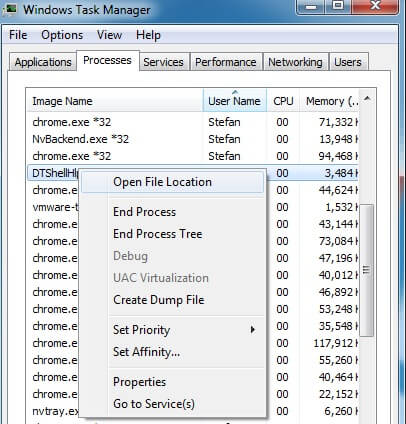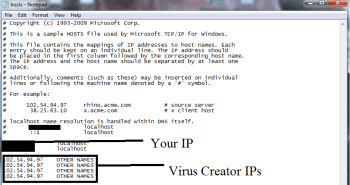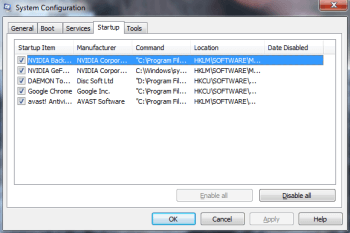.Delta
.Delta is a malicious computer virus known as Ransomware that seeks to force you to pay a ransom for access to your files. .Delta will place encryption on the files it finds on your computer in order to lock them and make them unusable.

Once the virus has finished with its file-encrypting task, it will go on to generate a note somewhere on the computer. Usually, the note is displayed on the desktop or is generated as a notepad file in the folders where the encrypted files are stored. The note informs the user about a ransom payment that is required from the victim in exchange for a special decryption key that can make the locked data usable again. If the user refuses to pay or simply doesn’t have the needed money, they are told that the encrypted files on their computer will never become accessible again.
This is how pretty much all file-encrypting Ransomware viruses operate and although they don’t typically cause any damage to the attacked systems, those viruses are still considered as some of the most problematic and difficult to deal with forms of malware. A Ransomware attack can cause loss of some very important data and could potentially lead to some very serious issues related to the user’s inability to access their own personal files. On the flip side, if the attacked user doesn’t keep sensitive files on their computer’s hard drive, the attack from a threat like .Delta wouldn’t be a particularly serious problem. The virus can be removed with the help of a reliable anti-malware tool or if you follow certain steps and even though the removal of the threat won’t release the files it has encrypted, if none of those files are important, then it won’t matter.
The .Delta virus
The .Delta virus is a money-extortion malware virus that will make your files unusable by locking them up in order to blackmail you. The .Delta virus will demand a ransom payment from you that you must pay in order to recover your data.

There, however, are other courses of action that are more advisable than paying the ransom even if you can afford to issue such a payment. One of the biggest problems with the Ransomware viruses such as Wiot, Edfc, in general, is that you cannot know what would happen if you do pay the demanded sum. The hackers could simply refuse to supply you with the access key that will release your files, in which case you would have simply wasted a significant amount of money.
The .Delta file encryption
The .Delta file encryption is the advanced algorithm that is applied by the virus for the lockdown of your data. To remove the .Delta file encryption from the affected files, you will need the special decryption key that the virus has generated for your computer.
As we already said, getting this key isn’t guaranteed even if you pay for it. So what other options are there? Well, for starters, you can remove the virus in order to prevent future encryption of more data and then try some of the potential alternatives. You can find more information regarding the virus removal and the alternative recovery options from the guide below.
SUMMARY:
| Name | Delta Plus |
| Type | Ransomware |
| Data Recovery Tool | Not Available |
| Detection Tool |
Some threats reinstall themselves if you don’t delete their core files. We recommend downloading SpyHunter to remove harmful programs for you. This may save you hours and ensure you don’t harm your system by deleting the wrong files. |
Remove .Delta Virus
![]()
Some of the steps will likely require you to exit the page. Bookmark it for later reference.
Reboot in Safe Mode (use this guide if you don’t know how to do it).
![]()
WARNING! READ CAREFULLY BEFORE PROCEEDING!
Press CTRL + SHIFT + ESC at the same time and go to the Processes Tab. Try to determine which processes are dangerous.

Right click on each of them and select Open File Location. Then scan the files with our free online virus scanner:

After you open their folder, end the processes that are infected, then delete their folders.
Note: If you are sure something is part of the infection – delete it, even if the scanner doesn’t flag it. No anti-virus program can detect all infections.
![]()
Hold the Start Key and R – copy + paste the following and click OK:
notepad %windir%/system32/Drivers/etc/hosts
A new file will open. If you are hacked, there will be a bunch of other IPs connected to you at the bottom. Look at the image below:

If there are suspicious IPs below “Localhost” – write to us in the comments.
Type msconfig in the search field and hit enter. A window will pop-up:

Go in Startup —> Uncheck entries that have “Unknown” as Manufacturer.
- Please note that ransomware may even include a fake Manufacturer name to its process. Make sure you check out every process here is legitimate.
![]()
Type Regedit in the windows search field and press Enter. Once inside, press CTRL and F together and type the virus’s Name.
Search for the ransomware in your registries and delete the entries. Be extremely careful – you can damage your system if you delete entries not related to the ransomware.
Type each of the following in the Windows Search Field:
- %AppData%
- %LocalAppData%
- %ProgramData%
- %WinDir%
- %Temp%
Delete everything in Temp. The rest just check out for anything recently added. Remember to leave us a comment if you run into any trouble!
![]()
How to Decrypt .Delta files
We have a comprehensive (and daily updated) guide on how to decrypt your files. Check it out here.
If the guide doesn’t help, download the anti-virus program we recommended or try our free online virus scanner. Also, you can always ask us in the comments for help!

Leave a Reply